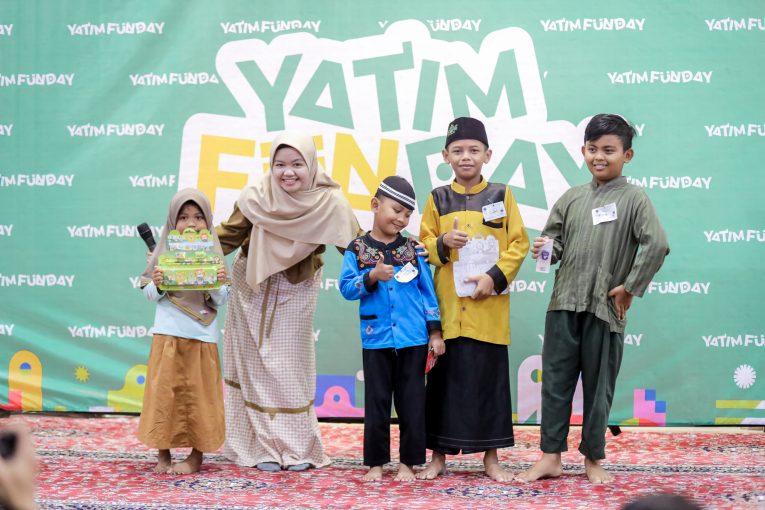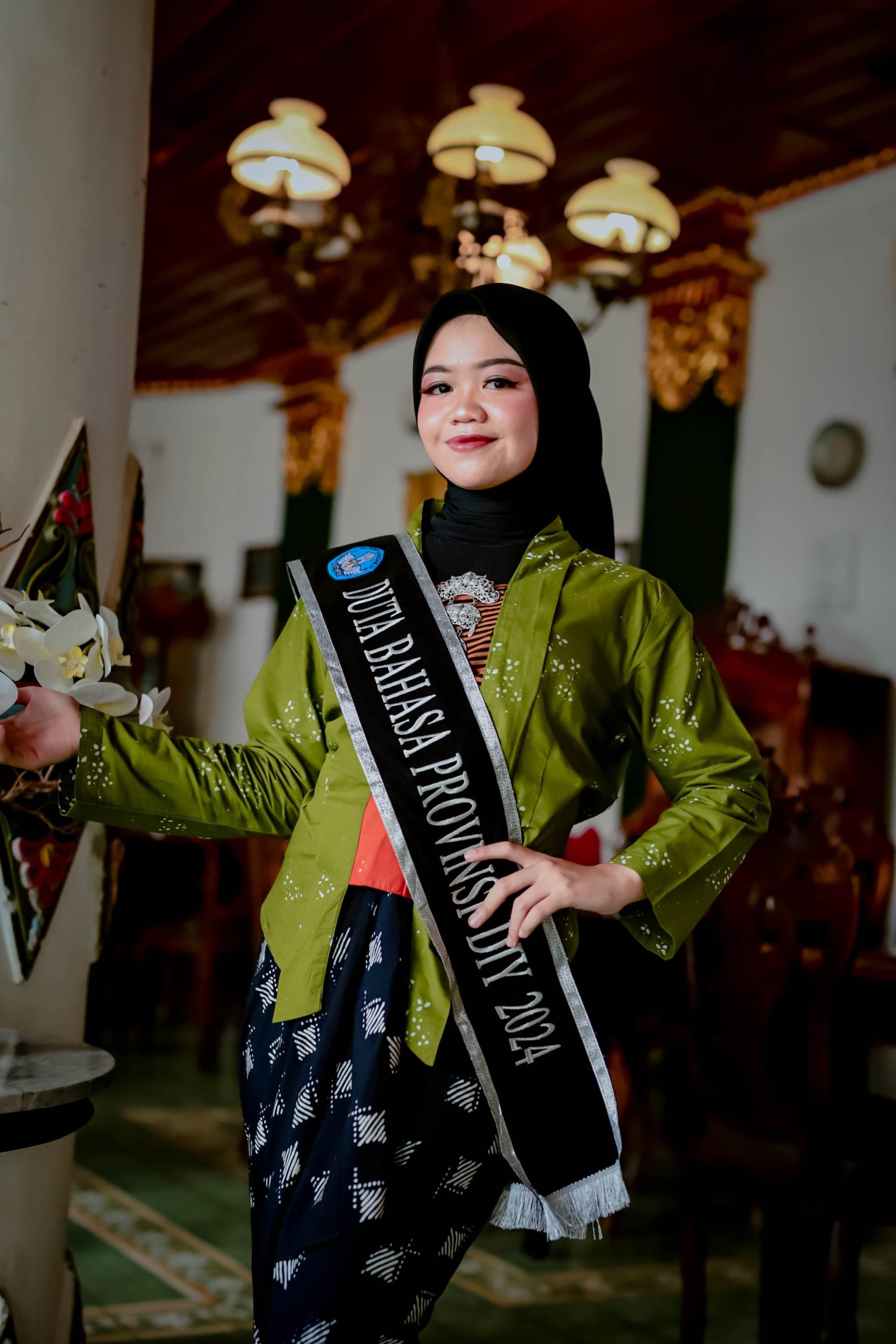
In a world where logic often reigns supreme, Pandhita, an Arabic literature student, believes that storytelling can evoke emotions that logic cannot reach. “When I played the role of a mother betrayed by her son, I saw the audience crying,” she states with conviction, her eyes gazing into the distance. For Pandhita, storytelling is not merely a performance or entertainment; it is a profound way to convey messages, stir emotions, and touch the human side that is often overlooked by rational thought. Her love for storytelling began in elementary school.
It was during a county-level storytelling competition that Pandhita first realized the power of a tale. Winning the competition was not the most memorable part; rather, it was the moment she understood how a story could make an audience laugh, ponder, or even shed tears. From that point on, storytelling transformed from a hobby into a life path that she believed could benefit others. She is convinced that imparting life values does not always require advice or counsel; light-hearted stories with deep meanings can be more readily accepted and absorbed. “Khairunnās anfa‘uhum linnās, the best of people are those who are beneficial to others,” she emphasizes, quoting an Arabic proverb that serves as her guiding principle in her work.
As she delved deeper into the world of storytelling, more doors began to open for her. Her storytelling skills led her to be trusted as a mentor in various fields, from the Arabic and English languages to general subjects. One of her most unique experiences was participating in a Korean storytelling competition, despite never having formally studied the language. Armed only with songs and dramas she had watched, she attempted to mimic the pronunciation and expressions, all in the name of broadening her horizons and learning a new language. This experience reinforced her belief that stories can serve as a medium for cross-linguistic learning.
Her ability to craft narratives and convey messages also made her a sought-after contributor to educational video projects. People entrusted her with the important task of delivering messages in a coherent, lively, and meaningful manner. However, one unforgettable moment was when she became a storyteller at a social event for children in marginalized areas. The audience may have been small, but when she performed the story of “The Crying Stone,” the room fell silent and emotional. “When I acted as a mother scorned by her child, I saw those children crying along with me. They were not just listening; they were feeling,” she recalls. It was then that Pandhita realized she was not just telling stories; she was bringing meaning to life.
This skill also led her into the professional world as a moderator and event host. For her, being an MC is not just about reading an agenda; it’s about creating an atmosphere, maintaining the audience’s enthusiasm, and keeping her own energy stable from start to finish. She combines narrative techniques with vocal modulation, light metaphors, and smooth transitions to make each segment of an event feel alive. In fact, storytelling once saved her during a high-pressure interview. When her mind went blank due to a question, she chose to respond with a narrative approach. “I simply told a simple analogy, packaging complex language into something straightforward and easy to understand, and the interviewer smiled,” she reminisces.

For Pandhita, storytelling is a bridge between the mind and the heart. She rejects the notion that storytelling is only for children. Instead, she believes that through stories, we can learn empathy, sensitivity, and social awareness. The world is filled with small yet meaningful things; we often just don’t take the time to see them. Therefore, she uses storytelling as a way to help others re-examine their lives from a warmer perspective. In various educational and motivational forums she attends, Pandhita always carries one important message: literacy and language are the keys to the future. “Unfortunately, many still overlook this,” she says softly.
When asked about her dreams, Pandhita confidently replies that she wants to create storytelling workshops open to everyone. A safe space where people can share their stories without fear of judgment. For her, storytelling is not about performing perfectly or impressively, but about honesty, courage, and self-acceptance. “Everyone has a story. And every story has power,” she asserts. She believes that being an inspiring person is not always about grand achievements; sometimes, it is enough to be a good listener or a sincere storyteller.

